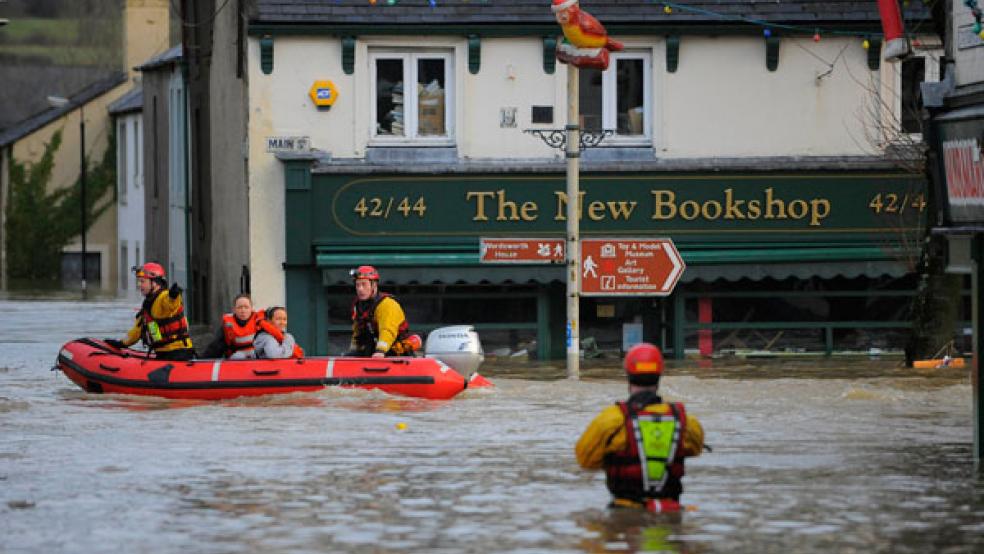Thousands of military facilities across the world are threatened by rising sea levels, ocean temperatures and increasing storm frequency brought on by climate change.
A new report by the Government Accountability Office warns the Pentagon that it needs to better prepare for weather-related threats at some 7,591 locations worldwide. If the Defense Department doesn’t establish a plan in a timely manner, the facilities will be at risk.
Related: Military Shifting Towards Clean-Energy Fuels
The report comes just a week after the House passed a Defense Department 2015 budget that includes an amendment barring the department from spending money on climate change initiatives. Of course, that amendment is not expected to survive the Senate. So the two chambers will have to sort this out at conference.
The auditors examined five climate change effects flagged by the Pentagon as potential threats to military assets around the world, including rising temperatures, changing precipitation patterns, more storms, higher sea levels and rising ocean temperature.
They found that climate change is already negatively affecting some military facilities.
In Alaska, for example, rising sea levels have caused coastal erosion at several Air Force radar installations. Similarly, officials on a Navy installation told the auditors, “They are concerned about possible storm surge during work on a submarine that will be cut in half while sitting in a dry dock.” They said, “If salt water floods the submarine's systems, it could result in severe damage.”
Related: 10 Biggest Risks Threatening Taxpayer Dollars
The report also found that 9 out of 15 military areas have experienced difficult training conditions due to wildfires and precipitation changes.
“According to DOD, its U.S. infrastructure is vulnerable to the potential impacts of climate change. These could affect DOD's readiness and fiscal exposure,” the report said.
Though GAO notes that the Pentagon has at least started identifying facilities that are threatened by climate change, its “lack of planning” could hinder its efforts.
The auditors said officials “rarely propose climate change adaptation projects” because planners “may believe that climate change projects are unlikely to successfully compete with other military construction projects for funding.”
(Congress is much happier to secure funding for things like this.)
Still, the Pentagon concurred with the GAO and said it would develop a focused approach to survey all facilities that may be threatened by climate change.
Top Reads from the Fiscal Times:





